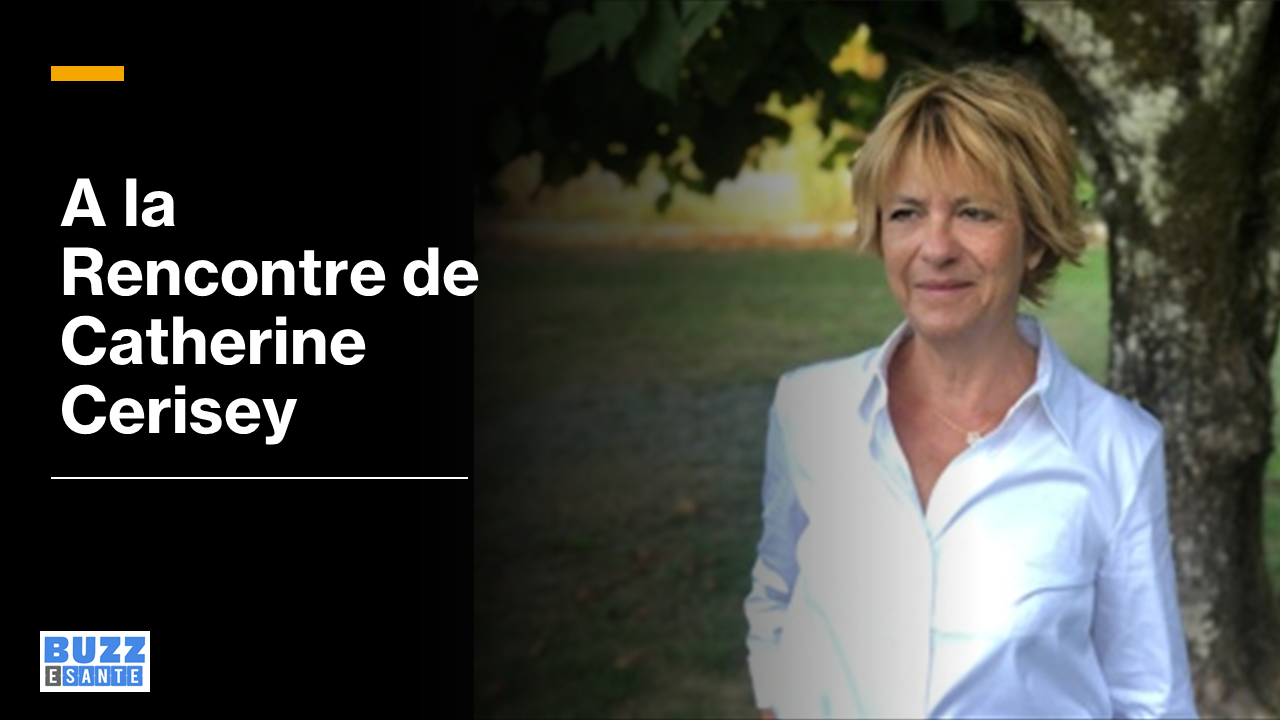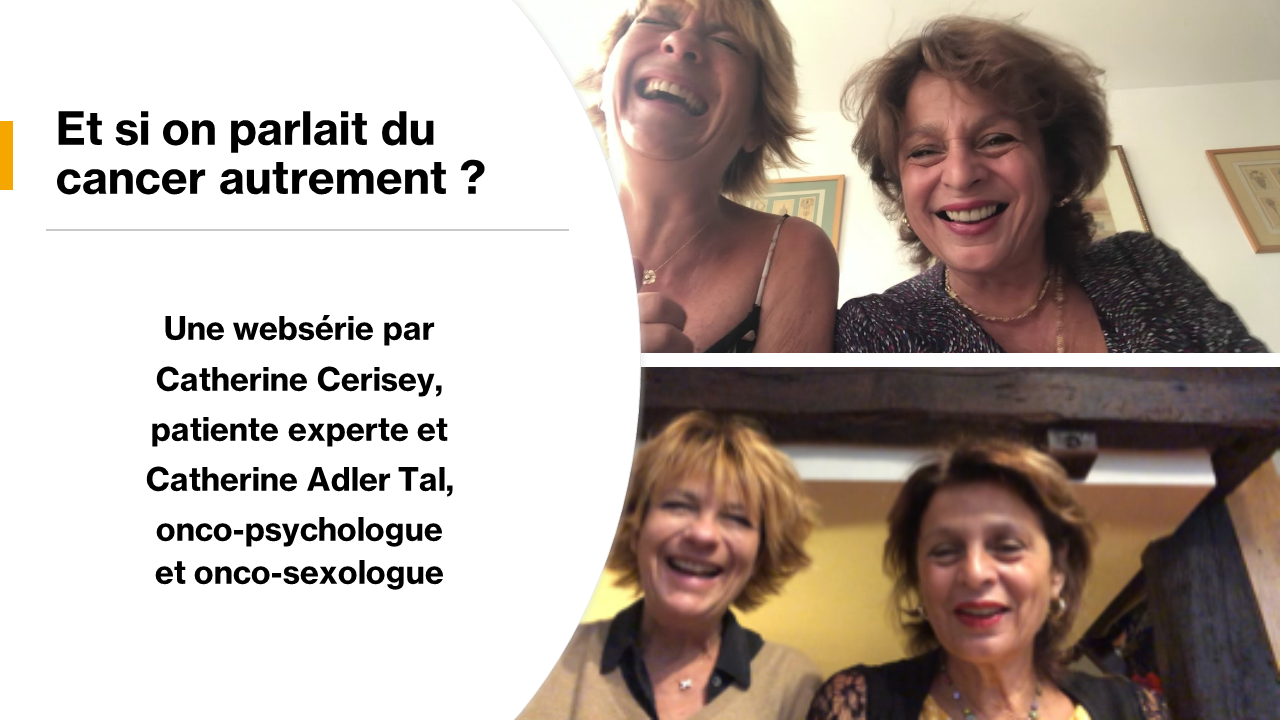[ad_1]
Regularly, I suggest you go and meet a digital health player in France. Today, let’s meet Catherine Cerisey, patient expert and co-founder of the Patient & Web agency.
Hello Catherine. Can you briefly introduce yourself?
Hello Rémy and thank you for this interview.
I am a former patient, diagnosed in 2000 with breast cancer which I relapsed two years later. So I had a long and trying journey. In 2009, I created an information blog on the disease and for 8 years I brought my look, sometimes sassy, on cancer. This blog, I opened it in my name, at a time when cancer was still shameful (“a long and painful disease”), which was probably my first militant act. Very quickly, I was approached by traditional media who curiously watched these emerging bloggers and by e-health conference organizers as a very committed e-patient on social networks (Twitter, Facebook, LinkedIn and more recently Instagram).
At the same time, I was contacted by institutions such as the Haute Autorité de health or INCa which saw the interest of these large patient communities created on the Internet but did not know how to collect this word. I realized the importance of joining patient associations to go further. I became Vice-President of Cancer Contribution, which works in the field of health democracy and administrator of Europa Donna, the French branch of a European coalition fighting against breast cancer. I learned there and I am still learning a lot. I was thus able to integrate more institutional commissions (HAS, Ministry of Health, Unicancer….).
In 2012, aware that there was a lot done for patients without patients, I co-created a health consulting agency that brings the patient perspective to stakeholders in the health system by helping them build tools adapted to the needs and uses of patients.
Finally in 2016, I joined the PEP 13 program of Paris XIII. They are patient teachers who participate in the training of interns in general medicine. A great revolution!
In 2019, with Catherine Adler Tal, onco-psychologist and onco-sexologist, you launched a web series “What if we talked about cancer differently? »Can you introduce it to us?
It started with an idea following a vacation that we spent, Catherine and I, during which we made videos where we relate our days. At the end of our journey, we were sad to stop, especially as these videos were eagerly awaited and very popular. We decided to continue them, but in a more “professional” fashion, since we were both very involved in the cancer field, Catherine Adler Tal as an onco-psychologist, onco-sexologist and I as a patient.
We had already worked together, in particular on Web radio broadcasts intended for patients with metastatic breast cancer for Novartis, and it seemed relevant to us to combine our two converging points of view again (but not always! ), in a different, more accessible format!
We called this program “What if we talk about cancer differently?” because we wanted him to look like us: we talk about cancer seriously but without taking ourselves seriously! During the COVID crisis, it was more complicated and after 20 videos, we felt like we had swept away a large part of the topics that revolve around cancer.After some reflection, we decided to resume filming but this time, in giving the floor to the main stakeholders: the patients. This initiative was very successful because we have already been contacted by a dozen people who wish to testify. The premiere of this new series is online on our YouTube channel.
Why did you want to launch this initiative?
We talk a lot about cancer, but not always with the right words or the right tone. Patients live, laugh, cry, love, hate…. like everyone. It is important to speak about the disease in a different tone, without pity or pathos, and also to address all the issues, even the most taboo such as sexuality. We never approach things from a medical point of view. We are not doctors ! Relatives are also the big forgotten people of the system, we talk about it a lot. These videos are also intended for them.
Very present on social media for many years, how do you see the emergence of more and more patients who use these new areas of expression?
In 2009/2010, this phenomenon was emerging in France and there were very few of us, especially on Twitter. I am delighted to see that today we have been joined by an army!
I think it goes with the democratization of networks and hashtags like #Metoo which have made society realize they are a political weapon. Patients have been exchanging for a long time on the internet, and have evolved into communities of mutual aid, experience sharing, etc. Today, other voices are being raised, not necessarily supervised and structured as in the associative environment. Some of these e-patients do not identify with the associations which are nevertheless essential. They took a long time to get hold of the tool. The COVID crisis made it possible to show them the importance of digital technology and they played the game very well!
We are moving from a representative democracy to a participatory democracy, like the phenomenon of yellow vests. The Internet is no exception to this development.
More generally, has digital technology contributed to ensuring that the voice of patients is a voice that matters?
On networks, speech is unbridled, fast, without filter. As we can see, in all areas including politics, they are essential but can be violent! It’s a ruthless world, as in medicine, there are definite benefits but also risks. You have to accept them.
Digital technology has contributed to the empowerment of patients. I think that unfortunately the crisis of this year has shown how fragile this role for patients is. Healthy democracy is the big forgotten thing in recent months. In the end, the networks were the only space in which the patients were able to express themselves, from there to saying that they were heard …
Finally, how do you see e-health evolving in the years to come in France, and more specifically the role of the patient?
We have observed a decline in this place in the health system which had been obtained through a hard fight thanks to the work of associations and the Kouchner law of March 4, 2002. It is clear that all this is very fragile!
As far as e-health is concerned, it is on the move J! I do not see a possible turning back. For it to be effective from the point of view of patients, we need to structure ourselves, avoid going all over the place and pool our strengths. It is necessary that the two currents (associative and digital), rather than opposing, coexist serenely to improve together the health system. But the road is still long and strewn with pitfalls! I’m an eternal optimist, so let’s say if our skies have darkened, the good weather will return. It always takes a good downpour to make a beautiful rainbow.
For further : What if we talked about cancer differently?
Similar articles
[ad_2]









